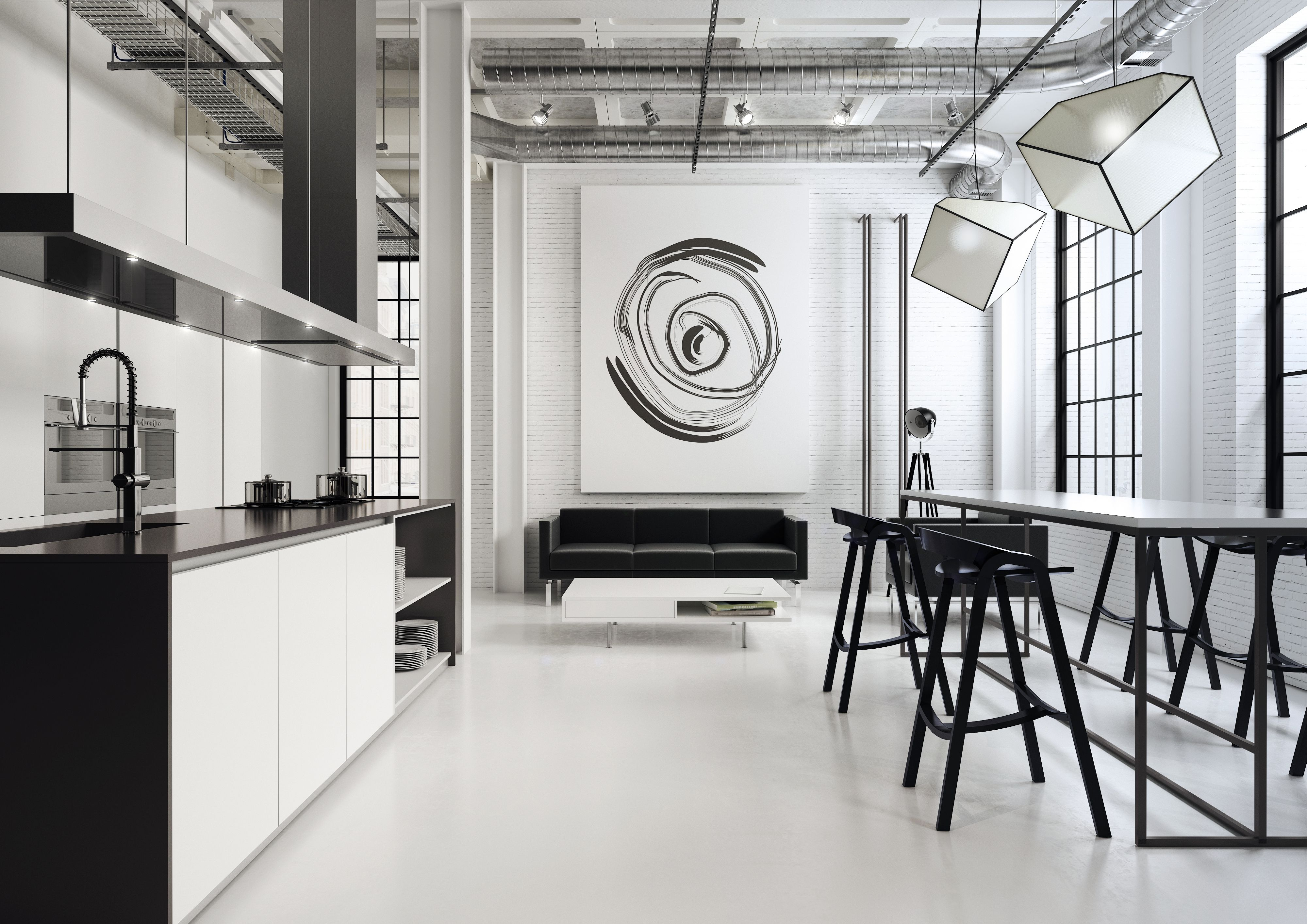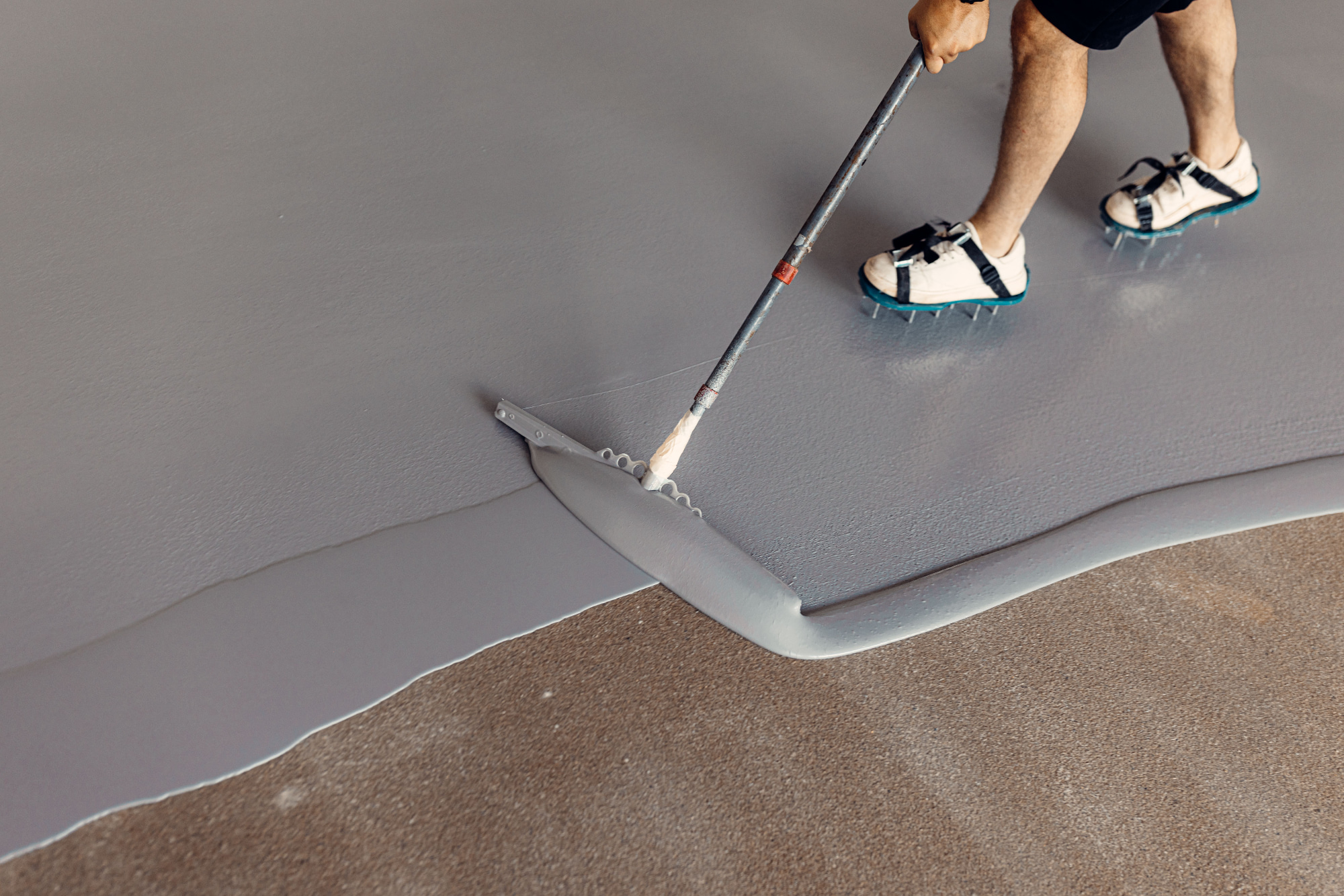
Epoxy flooring is more likely to be familiar from commercial environments. But this super durable surface can be a good choice for some areas of a home – and it is becoming a more popular option in interiors.
The reason for increased interest from homeowners? Epoxy is more than a hardwearing type of flooring. It comes in a wide choice of colors, which means it can complement an interior beautifully, so it doesn’t disappoint in the style stakes.
But, along with its plus points, epoxy has some disadvantages compared to other floor types that are important to be aware of. We asked flooring and interiors experts to explain, and this is their advice.
What is epoxy flooring?
Epoxy flooring is typically encountered in commercial and industrial spaces, but it’s now seen in homes, too, considered alongside options such as laminate, luxury vinyl, or linoleum.
‘Epoxy flooring has become more popular in residential applications over the last few years,’ says Sean O’Rourke, National Director of Merchandising at Floor Coverings International. ‘More consumers have become familiar with it through their workplace environments, new restaurants, and public facilities.’
Epoxy is not going to suit every home or every space, but it is versatile. ‘Epoxy floors have exceptional strength and many uses,’ says interior designer Artem Kropovinsky. ‘You can make epoxy floors look like sleek metals or stone flooring for high-traffic areas.’
Our guide has the details on its pros and cons, and the rooms and areas in which you might use it.
The pros of epoxy flooring
There are many upsides to epoxy flooring as a choice for certain rooms in the home:
Versatile finishes: It is highly customizable in color options and texture.
Easy cleaning: ‘The non-porous nature of epoxy makes it easy to clean and maintain,’ says Jay Sanders, owner of Maryland Contractors, a home remodeling company in Baltimore, MD. 'It resists up to 98 percent of common household spills and stains, saving you time on scrubbing.’
Low maintenance: Epoxy floor maintenance is easy with regular cleaning to prevent scratches. Yet the resilience of epoxy means little effort is needed to keep floors looking great.
Water resistance: Epoxy is a practical choice where moisture is present
Durable: Epoxy flooring is known for its resilience and can withstand heavy use, making it long-lasting.
Chemical resistance: ‘Epoxy is resistant to chemicals, which is beneficial in garages or workshops,’ says Jay. ‘It can withstand exposure to oil, gasoline, and most workshop solvents without degrading.’
Installs over concrete: ‘Epoxy flooring is a coating for concrete flooring,’ explains Rotem Eylor, CEO and Founder of Republic Floor. ‘The coating is applied directly on the concrete to provide a protective layer.’
The cons of epoxy flooring
Epoxy flooring has a few disadvantages that it’s important to be aware of:
Costs: ‘Epoxy flooring is more expensive than traditional flooring options such as waterproof vinyl planking, laminate or hardwood,’ says Sean O’Rourke.
Slipperiness: Unless you use a textured surface option, it can be slippery when wet.
Installation issues: Installing epoxy floors takes careful work and a very clean base surface to avoid future peeling or cracking issues. It takes several days to cure fully, limiting space use for some time. Adequate ventilation is also essential during installation, so fumes are not trapped inside.
Yellowing: Exposed to UV, epoxy can yellow over time although this is particularly an issue when it’s used outside. The choice of color or finish can make a difference here, and there are UV resistant topcoats available.
Potential for scratches: High-gloss finishes can show scratches more easily.
Spaces and rooms suitable for epoxy flooring
Because epoxy flooring is highly durable, it’s a sound choice for commercial spaces, but it may not be suitable for many rooms in your home. That being said, garages and basements can benefit from this robust type of flooring.
‘Epoxy is commonly used in garages due to its durability and resistance to automotive fluids,’ says Jay Sanders. ‘It’s also a good choice for basements, especially if they are prone to moisture issues.'
‘Epoxy floors suit garages and basements,’ agrees Artem Kropovinsky. But he also suggests it could be used in a kitchen. Some homeowners choose epoxy for a bathroom. Make sure you opt for a textured option if you follow this route.
Epoxy flooring installation

‘Covering your garage floor with an epoxy treatment could be a DIY project for most homeowners,’ says Sean O’Rourke. ‘A professional result may not be needed in your garage, but indoor residential spaces should be left to the professionals. I recommend professional indoor installation to ensure the right options are selected to fit the homeowner’s needs so that the epoxy floor can deliver the optimum performance.’
The floor is a major element in any room scheme, so the choice needs careful consideration. Alongside epoxy, there’s a huge range of kitchen flooring ideas to consider and the same goes for bathroom flooring. Epoxy is also one of the best basement floors and can be a top choice when you want to get rid of mold in a basement, too.







